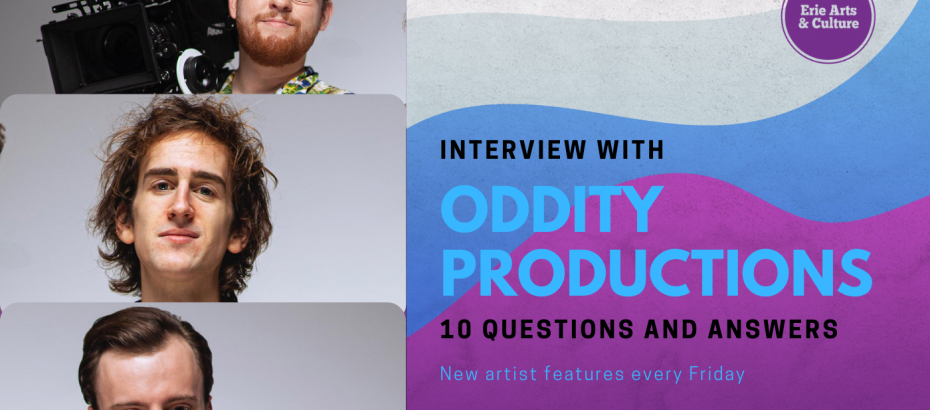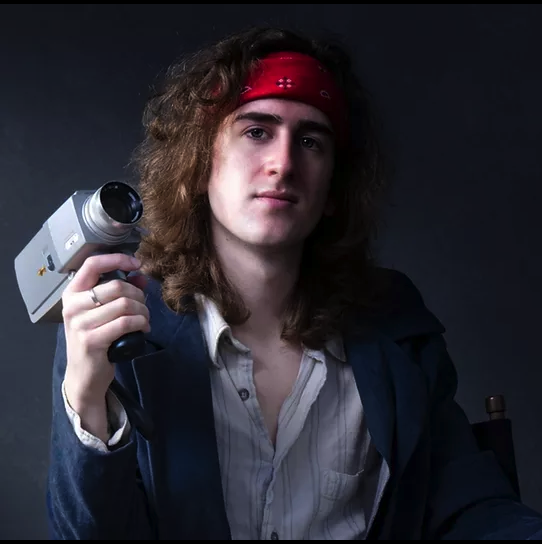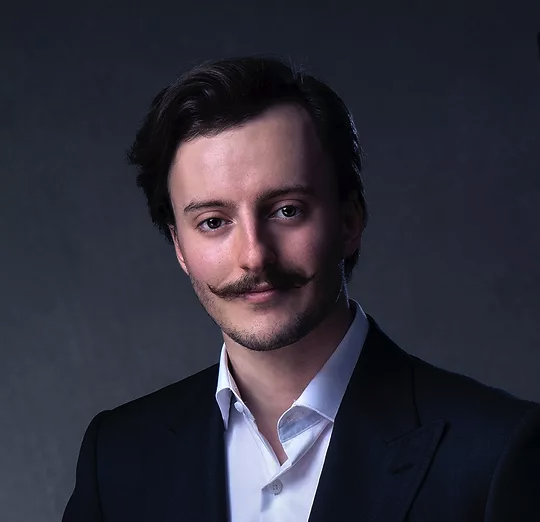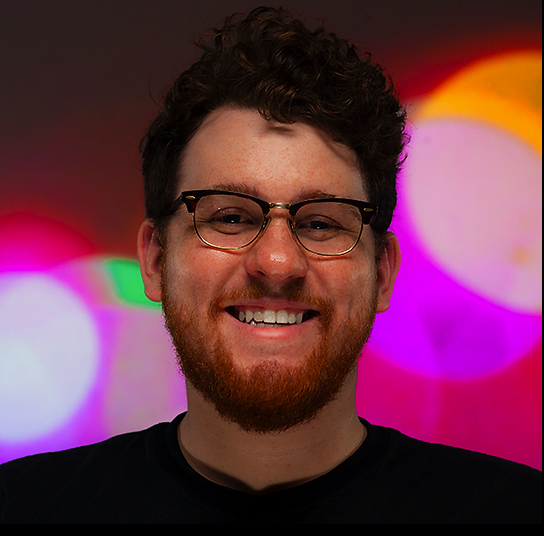10 Questions with Oddity Productions
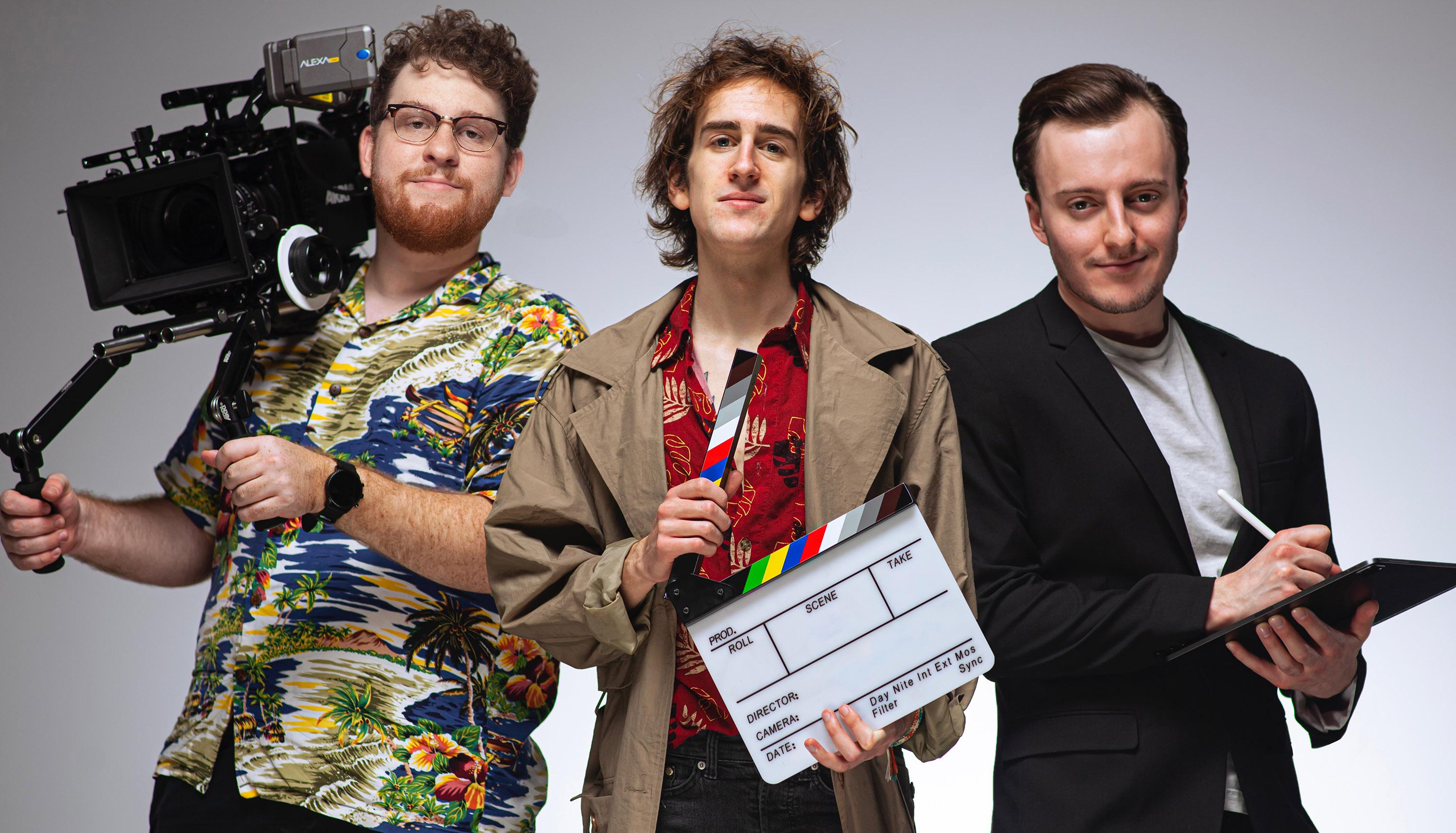
Oddity Productions
-written by Nat Richmond
Cinematography is an Art form that truly encompasses several major Art forms, and melts them into one pot of expression, truth, and realism. Some would even refer to it as "poetry in motion", as it encapsulates the human experience into a viable form that can be seen, felt, heard, and IF you do it right....remembered. Film has a special way of delivering a message to the audience in a way that is enlightening, endearing, and empathetic. Despite this romantic view of film, the granular, day-to-day operations that goes into the planning and development of a film can be chaotic. Teams have to organize, strategize, and execute as a seamless process to bring forth a work that is quality and competitive. To know of your team's strengths is KEY, and that's where Oddity Productions takes reign. I was fortunate enough to be in attendance to Oddity's premiere of "Alexander the Brain" at the Erie Art Museum, and to say I was blown away is an understatement. The quality of the film grappled me, pulled me in, and took me to a new world...one that was raw, inspiring, and pulsating. The camera shots, editing, audio production...the entire presentation left me speechless and amazed. I just new I HAD to sit down with this group of folks to figure out how they could synergize so well and create such an impactful piece of work. Danny Pakulski (Founder, Writer/Director), Simon Yahn (Technical Director, Director of Photography), and Liam O'Brien (Managing Partner, Executive Producer) let me into their world and answered a few burning questions I had.
What would you say inspired you to get into the film industry artistically?
Liam: Well, I know that I was always really interested in movies as a kid growing up, and I think that's how a lot of people get into film as they watch films as kids, and they get really immersed in the stories and they get they feel a lot of connection with the characters. And I remember when I was really young, I had one of those flip cameras and I would make these really fun little kid videos with my neighbors. And I always I always liked looking through a camera and seeing what I could make with it, but I never really thought of it as a career until I was in college with Danny, and Danny was talking to me about doing a film business, and I thought it was such a cool idea because making movies was always fun for me as a kid, and even in high school I would always pick a video project if I could pick one, because it was always so much more fun. So I think that's kind of where it started.
What originally inspired you to choose Cinema to be your Art of choice?
Danny: The amazing part about film is that it can move you in a way that other art forms can’t. When a certain shot or camera move happens in tandem with music it’s unlike anything else. Creating those moments and making people feel something within themselves is always what I’m going for and it’s what drew me to film initially. Especially as a writer and director I get to craft those moments and the world around them. I love the idea that every film is a big sandbox and I get to make whole worlds within it. Also how can I connect with someone. Every movie is figuring out the human element of the story that someone will be able to link with and how can I make this story something that no one has ever seen before.
What got you on this path as being a Director of Photography?
Simon: I've always pushed or I've always been attracted to the idea of the Technical Creative, someone who can both understand the physics and science of how we make images and make images cinematic, but also beyond understanding on the artistic side of like, how do I convey emotion by these buttons pressed or these knobs turned, or these lights bright and dimmed or angled differently? And that kind of obsession with gaining a strong understanding of both the technical and the creative and how to both translate and act on both of those is really where filmmaking just fell perfectly because filmmaking is an incredibly technical process. Yes, there's so many devices, so many physics situations that are going into getting an image from the real world to a screen. Movies have such an intense emotional and artistic presence, especially in the cinema, that it was really just a wealth of knowledge of both creative and technical that just drew me to it like nothing else.
Would you say that with film, do you feel that it's the best way for you to express yourself?
Liam: John Lyons is a local filmmaker and probably one of the more known filmmakers from our area. I heard him say one time that filmmaking is the combination of almost every art discipline, because you have lighting art, you have art physically in the set and the design of the set, and you have makeup on the wardrobe like paints and stuff, and you've got the writing and you've got the acting and you've got the camera work. And, there's so much art involved in every small piece of a film that it's really the most. It really becomes the most immersive thing. That's why people, I think, can sit in a movie theater and walk out and forget that there's a whole world out there. And, they walk out. They're like, "It's dark now. What the heck?" That's why I think film is one of the most powerful pieces of art, because it can connect with everybody. And it really is, I think, the most effective at putting people into a new state of mind.
What do you think makes a good movie?
Liam: I think it really comes down to the amount of teamwork between the different departments and. And then how much. How much thinking goes into the details in advance. So there's kind of three there's kind of three phases of a film. There's the pre-production, there's the production, which is when you film and then there's the post-production, which is the editing. And then the pre-production, you figure out everything. You figure out what the set is going to look like, you figure out what the actors are going to look like and what they're going to sound like. And that's, you know, what the story is. You usually have a script already, so you figure out how to how to bring that script to life. And then when you're shooting it, making sure that the lighting team and the camera team and the actors and the art and everything is so lined up and everyone has the same vision in mind and they're all working together and then into post-production. And then the editing has to really bring it all home and tie it up together, I think. So the short answer is, I think collaboration, like people working together with the same vision in mind is what makes a good film. And then for that to work though, you have to have a really powerful script. You have to have a powerful story so you can't have one or the other. You got to have a good story, a good script, and then you have to have a good collaboration.
How would you describe the role of the Director of Photography?
Simon: I would say that the Director of Photography is the executioner for the Director. The Director has this mental image, this script that they've read in these characters that they've built up and through communication with that Director of Photography, you figure out what's the best way to actually take those feelings that they've described, those descriptive words, and change that into real light, real camera, placement, angle, distance, focus, lens, everything. All those technical details which are, when it comes to a camera, between 12 and 15 different settings that alter the look of the camera and flowing through the story and fulfilling the story's needs. So again, that idea of taking these feelings and emotions and words and turning them into an image with a camera and stuff in front of it.
Name a movie that has had the most impact on you creatively
Danny: I don’t think I can pick just one film that has impacted me the most but a lot of the work of Martin Scorsese and David Fincher has always been inspiring to me. They are both masters of their craft and particularly when it comes to the precision they use I’m always blown away. They know how to tell huge stories with lots of motion but also focus on what matters most and that’s character. How they use music is another important aspect of their work I love because of how I want to combine visuals and audio to create these experiences for people.
Do you feel that Oddity has creatively found its distinct style? If not, what will it take to get there?
Danny: Oddity’s creative style is always going to be focused on creating things that are cinematic, unique, and exciting. But when it comes down to it there is a certain openness involved in every project. There will always be a new flavor to bring to the table that wasn’t there once before. Especially as we work with new creators and hear new voices. I like to think of Oddity as a jam session of sorts. Constantly evolving, experimenting, and creating something new.
How important would you say is editing to the process?
Simon: We definitely like to approach editing in the same way as we approach the on set aspect of it. It's very core to whatever the look or impact of whatever we're making is. So sometimes, you're looking for edits that are very consistent where very linear things like follow in the motion of what how they're happening. But sometimes you want to make associations by cutting one shot with another shot to associate them or fading shots over each other so that we get like a layer effect. All of those are editing decisions that we usually decide with tests or experimentation. So we find what style of editing fits, just as we would figure out what how what visuals fit the story.
Where are you guys going next for Oddity Productions? What is your goal for what you want to bring to the film industry in Erie and even outside of Erie?
Liam: So we shot our first short film last year with equipment locally and local everything, local people here, and it went over really well. It got a good it got a good response here in the area. Then also we've been doing really well with festivals, winning some awards, being finalists for like the best short film in 2022 at the LA Indie Short Awards. We've seen a lot of good come out of that. Then we just recently shot our second short film, which was way higher budget. We actually we shot it in Rochester because simply we didn't have the technology that we needed here. So we were hoping that that would that would be a good push towards bringing technology like that to area, which is virtual production. We were able to do it well. We have a good we have a good product. now we're just in the post production of it. But for what's next, I think we're going to start looking into doing more content locally with like doing another short film locally, trying to keep trying to keep focus on the greater film industry and how it could grow and evolve. So doing doing more projects, doing higher budget projects, maybe doing a feature film, I think that would that would kind of push us towards our mission, which is to improve the community by growing the film industry through our creative work, collaborative or creative, our creative work, igniting conversations and facilitating collaboration. So that's kind of our mission. I think to get there, we just really need to start. We have to continue, I should say, putting more work out there in the film space and showing people that you can shoot stuff in area and that it'll turn out really good. And there's collaborative people here and there's resources here.
Simon: I'd say mostly inspiration. Like, I want young people to see us and be like, "we could do that too". Really, nowadays we're in a golden age of technology, especially in the motion picture industry. You do not need a $60,000 cinema camera to make a movie anymore. You can make incredible movies on cameras that you can responsibly afford. And, all it takes then is the willingness to go out and learn how to do it, how to make some things, make some mistakes, see what you want, and want to improve. That's really how we've done it. We've been blessed to be exposed to more traditional training in film production that's allowed us to incorporate larger and larger, more ambitious camera and lighting and movement and story with every project. But, we started at the same level as any student in high school right now, and we had the access to the wealth of Erie and the locations and the public support of filmmaking to really just feel like we could go out and make any story we wanted. So I feel like if Oddity can help inspire other people and inspire the companies and organizations of Erie to recognize that power of filmmaking and storytelling for their own businesses, for their own purposes, you know, I think that in a perfect world, Oddity inspires not just people in Erie to become filmmakers, but people from outside of Erie to come make films in Erie.
Danny: Erie is such a fruitful place for filmmaking. There’s no end to what we can achieve here and the barriers to entry are next to none. We would love to see more young and diverse filmmakers take advantage of what we have here and build a film industry that can support artists doing what they love: telling stories.

